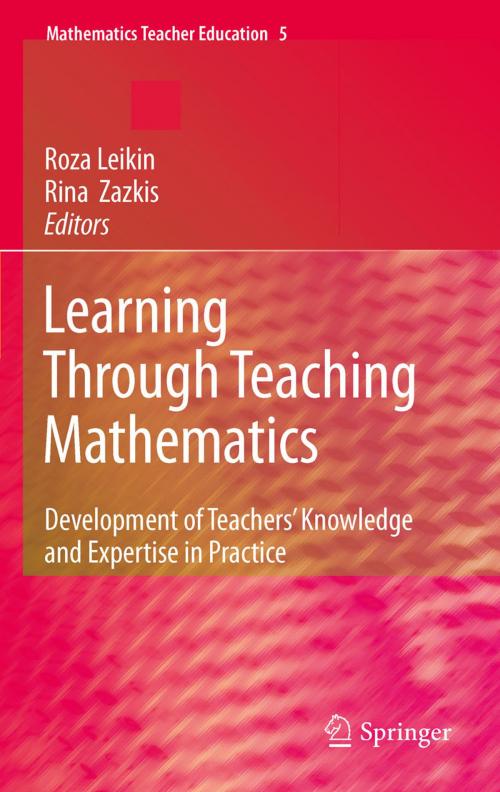Learning Through Teaching Mathematics
Development of Teachers' Knowledge and Expertise in Practice
Nonfiction, Science & Nature, Science, Other Sciences, Study & Teaching, Reference & Language, Education & Teaching, Teaching, Teaching Methods| Author: | ISBN: | 9789048139903 | |
| Publisher: | Springer Netherlands | Publication: | April 10, 2010 |
| Imprint: | Springer | Language: | English |
| Author: | |
| ISBN: | 9789048139903 |
| Publisher: | Springer Netherlands |
| Publication: | April 10, 2010 |
| Imprint: | Springer |
| Language: | English |
The idea of teachers Learning through Teaching (LTT) – when presented to a naïve bystander – appears as an oxymoron. Are we not supposed to learn before we teach? After all, under the usual circumstances, learning is the task for those who are being taught, not of those who teach. However, this book is about the learning of teachers, not the learning of students. It is an ancient wisdom that the best way to “truly learn” something is to teach it to others. Nevertheless, once a teacher has taught a particular topic or concept and, consequently, “truly learned” it, what is left for this teacher to learn? As evident in this book, the experience of teaching presents teachers with an exciting opp- tunity for learning throughout their entire career. This means acquiring a “better” understanding of what is being taught, and, moreover, learning a variety of new things. What these new things may be and how they are learned is addressed in the collection of chapters in this volume. LTT is acknowledged by multiple researchers and mathematics educators. In the rst chapter, Leikin and Zazkis review literature that recognizes this phenomenon and stress that only a small number of studies attend systematically to LTT p- cesses. The authors in this volume purposefully analyze the teaching of mathematics as a source for teachers’ own learning.
The idea of teachers Learning through Teaching (LTT) – when presented to a naïve bystander – appears as an oxymoron. Are we not supposed to learn before we teach? After all, under the usual circumstances, learning is the task for those who are being taught, not of those who teach. However, this book is about the learning of teachers, not the learning of students. It is an ancient wisdom that the best way to “truly learn” something is to teach it to others. Nevertheless, once a teacher has taught a particular topic or concept and, consequently, “truly learned” it, what is left for this teacher to learn? As evident in this book, the experience of teaching presents teachers with an exciting opp- tunity for learning throughout their entire career. This means acquiring a “better” understanding of what is being taught, and, moreover, learning a variety of new things. What these new things may be and how they are learned is addressed in the collection of chapters in this volume. LTT is acknowledged by multiple researchers and mathematics educators. In the rst chapter, Leikin and Zazkis review literature that recognizes this phenomenon and stress that only a small number of studies attend systematically to LTT p- cesses. The authors in this volume purposefully analyze the teaching of mathematics as a source for teachers’ own learning.















